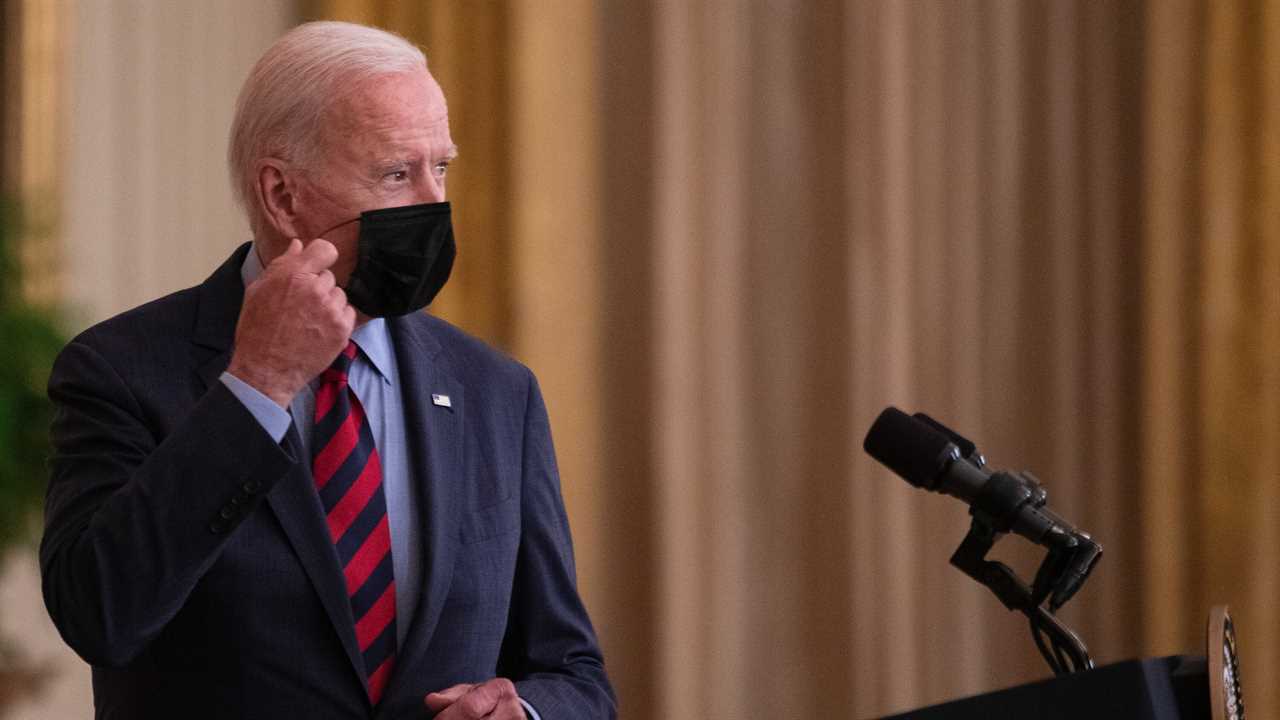
WASHINGTON — President Biden signaled a new level of frustration on Tuesday with Republican leaders in states where the highly contagious Delta variant is surging, telling governors in Texas and Florida to help fight the pandemic or “get out of the way.”
While he praised leaders in other states for offering cash and other incentives to entice reluctant Americans to get vaccinated, Mr. Biden singled out Florida and Texas, where cases have risen sharply, for criticism. As cases rise, Gov. Ron DeSantis of Florida has signed an executive order allowing children to attend school without a mask, and Gov. Greg Abbott of Texas has barred mask and vaccination mandates.
“I say to these governors, please help,” Mr. Biden said. “If you aren’t going to help, at least get out of the way of the people who are trying to do the right thing. Use your power to save lives.”
Mr. Biden and his top advisers have been under pressure in recent days to clarify what is at stake for unvaccinated Americans as the Delta variant becomes the dominant strain of the coronavirus in the United States. Recent public health reversals from the White House and the Centers for Disease Control and Prevention have left some Americans struggling to wade through shifting directives on mask usage and roiling debates about requiring workers to receive the vaccine.
In his speech, Mr. Biden emphasized that the people who got sickest from the Delta variant were unvaccinated, and that his administration was working to make vaccines available to every person who needed one. Fully vaccinated people are well protected against the worst outcomes of Covid-19 caused by the Delta variant.
“I know there’s a lot of misinformation out there, so here are the facts,” Mr. Biden said. “If you are vaccinated, you are highly unlikely to get Covid-19. And even if you do, the chances are you won’t show any symptoms. And if you do, they’ll most likely be very mild. Vaccinated people are almost never hospitalized with Covid-19.”
The White House has also struggled to put into context the threat of the Delta variant to those who are vaccinated. Experts say that infections in vaccinated people — so-called breakthrough infections — are still relatively uncommon, and that even in those cases, the vaccines appear to protect against severe illness and death.
Mr. Biden suggested that his race to encourage Americans to get their shots was bumping up against contradictory directives in states like Florida and Texas.
“I believe the results of their decisions are not good for their constituents,” Mr. Biden said when asked if the governors in those states were harming their citizens. “And it’s clear to me and to most of the medical experts of the decisions being made, like not allowing mask mandates in the schools and the like, are bad health policy.”
Mr. Biden reiterated his earlier announcement that federal workers must be vaccinated or subject to strict requirements.
Latest Updates
- A Michigan official quits a leadership role after using Covid funds for his own ‘hazard pay.’
- Most children with Covid-19 recover within a week, but a small percentage have long-term symptoms, a study says.
- New York City’s vaccine rules are a good step, but may not be enough, health experts say.
“If you want to do business with the federal government,” he said, “get your workers vaccinated.”
He added that the private sector, including companies like Walmart, Google and Tyson Foods, was taking similar steps.
“Even Fox has vaccination requirements,” Mr. Biden said.
The president also had positive news to share: He said that over the past two weeks, the eight states with the highest case rates had doubled the number of people getting vaccinated each day, and that vaccination rates were rising across the country after slumping earlier in the summer. An average of 369,809 people a day have received their first vaccine dose in the past week, according to data from the Centers for Disease Control and Prevention.
Nationally, new cases have reached an average of about 86,000 a day as of Monday, a major jump from about 13,000 daily cases a month ago but still far fewer than in January. Hospitalizations have risen as well, but hospitalizations and deaths remain a small fraction of their devastating winter peaks.






